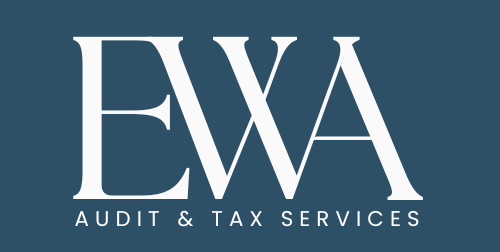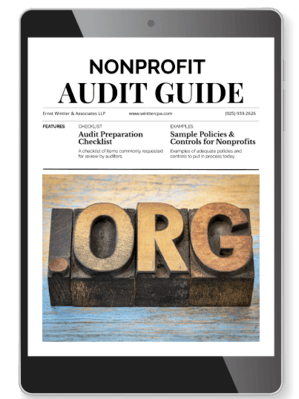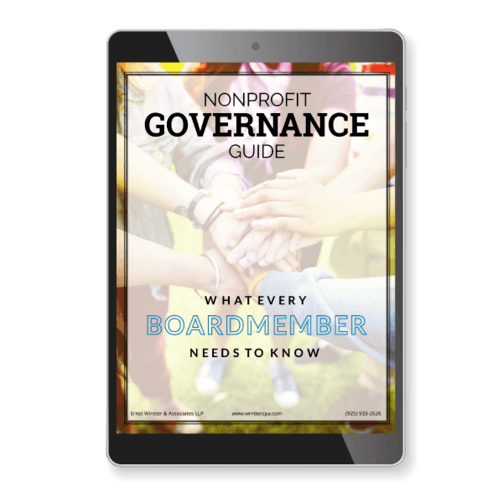Nonprofit Financial Reporting
In August 2017, the Financial Accounting Standards Board (FASB) adopted a new set of rules marking the first major update since 1993. These changes, effective December 31, 2017, were designed to simplify and enhance nonprofit financial reporting. The goal is to improve transparency and communication between nonprofits, investors, and stakeholders while reducing the complexities and costs often associated with annual reporting.
Improved Communication with Donors and Investors
The changes to nonprofit financial reporting are meant to increase the transparency of the organization’s financial operations, providing the nonprofit’s economic history through its annual reports. The rules clarify not only how donated assets are classified, but also provides more consistency in reporting investments and returns. The advantages for the nonprofit include having an open portfolio for potential donors and grant decisions to be referenced.
Key Updates to Nonprofit Accounting Standards
The update to Topic 958, Not For Profit Entities, reduces the number of classes of net assets to only two choices:
- Net assets which have donor restrictions
- Net assets independent of donor restrictions
Nonprofits will now be required to disclose more information related to internal appropriations without donor-imposed restrictions, as well as provide information regarding the effects donor restrictions have on efficient resource application. Other sections of Topic 958 cover subjects such as information regarding the solvency of the nonprofit during the following 12 months. An accounting firm is able to provide a complete list of changes and their impact on reporting and audits for nonprofits.
Compensation – Retirement Benefits
Compensation – Retirement Benefits, Topic 715, is undergoing an update to improve the nonprofit’s communication of the itemized costs associated with post-retirement benefits and compensation. Among other things, the changes will separate service costs associated with these benefits from the benefits themselves. The goal is to provide greater detail along with more transparency of operations for donors or other parties engaged in analysis of the organization’s financial performance. These updates may necessitate changes within your nonprofit’s accounting procedures to maintain compliance.
Statement of Cash Flows
Statement of Cash Flows, Topic 230, is undergoing a major update which addresses 8 individual cash flow issues. The goal is to reduce diversity in how cash flow is reported, creating greater consistency. The changes apply to all business entities, including nonprofit organizations, which are required to file a statement of cash flows under Topic 230. Among the issues being addressed are:
- Debt Prepayment and Extinguishment Costs
- Identifiable Cash Flows
- Proceeds from Insurance Claims
- Proceeds from Corporate-Owned Life Insurance Policies
All of the FASB changes are intended to improve the quality and quantity of data the nonprofit shares with its board of directors, donors, or other stakeholders.
The purpose of the entire range of updates is to clarify existing rules for reporting clarity. The goal is to protect stakeholders by disclosing data in a consistent, usable method.
Ernst Wintter & Associates LLP specialize in California non-profit audits and tax preparation. Contact us today for help with your non-profit audit or tax prep needs.








